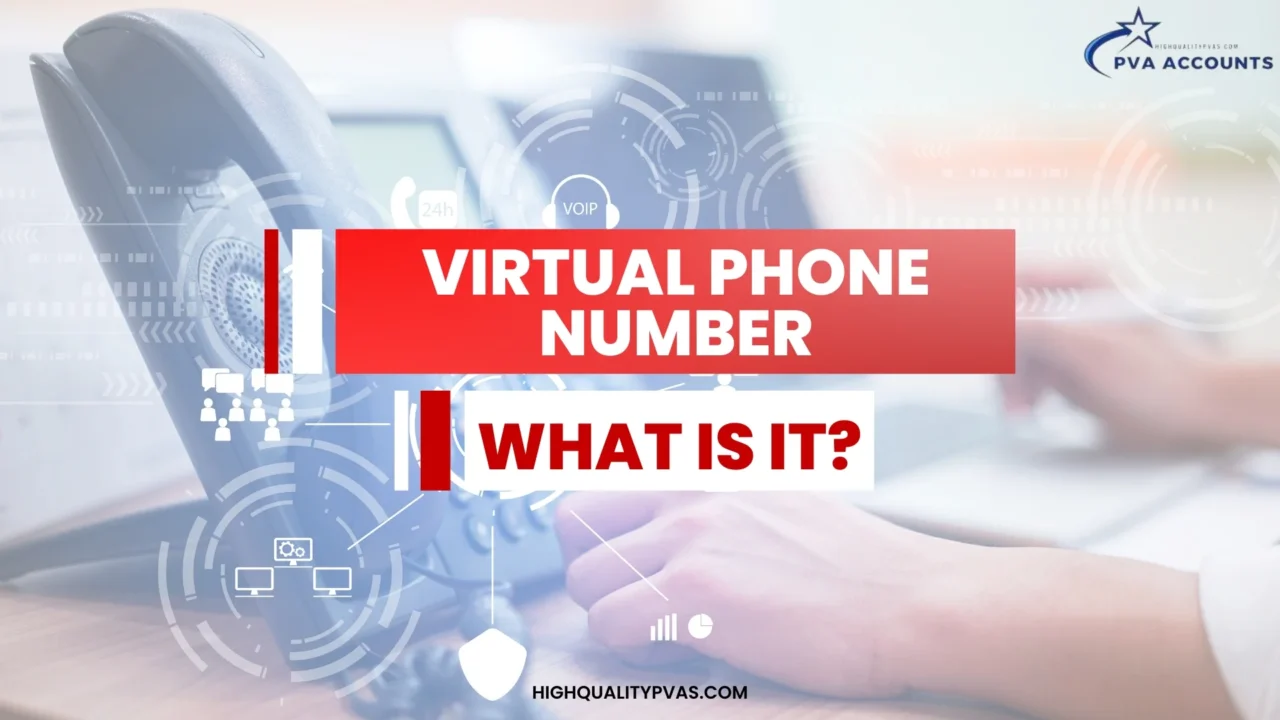
Yes, in some contexts, virtual and VOIP numbers are the same. Communication has become more critical than ever in today’s fast-paced digital world. Businesses and individuals are constantly seeking efficient and cost-effective ways to stay connected. Two popular options that have emerged in recent years are virtual numbers and VoIP numbers. At first glance, you might assume these two terms are interchangeable, but that couldn’t be further from the truth.
So, what exactly is the difference between a virtual number and a VoIP number? This blog post will dive deep into the telecommunication world to explore the nuances and distinctions between these two innovative technologies. You might be wondering, are virtual numbers the same as VoIP numbers? While they both cater to the evolving landscape of modern communication, there is a significant distinction between them. Stay tuned as we dissect the intricacies and illuminate the answer to this burning question.
So, whether you’re a business owner looking to streamline your communication or an individual seeking greater control over your phone calls, this blog post will equip you with the knowledge you need to make an informed decision about virtual and VoIP numbers. Are you ready to delve into the world of telecommunication technology? Let’s get started!
What is a Virtual Number?
A virtual number is a telephone number that isn’t directly associated with a physical phone line. Instead, it operates through the cloud, allowing calls to be forwarded to any device or location. This flexibility makes virtual numbers an attractive option for businesses and individuals who want to create a professional image while maintaining the convenience of receiving calls on their preferred device, whether a smartphone, landline, or computer.
Virtual numbers are characterized by their ability to operate without being tied to a physical phone line. They are typically managed through an online portal or app the service provider provides. Users can customize settings such as call forwarding rules and voicemail greetings and even set up multiple virtual numbers for different purposes.
One key characteristic of virtual numbers is their portability. Since they are not tied to a specific location or device, users can easily switch devices or move locations without changing their phone number. This makes virtual numbers ideal for remote workers or businesses with multiple locations.
Read more: What is a virtual phone number?
Common Uses in Businesses
Virtual numbers have become increasingly popular in business settings due to their versatility and cost-effectiveness. Here are some everyday use cases:
- Professional image: Virtual numbers allow businesses to project a professional image by having a dedicated phone number for their company. This helps separate personal and business calls and gives the impression of a larger, more established organization.
- Remote work: With the rise of remote work, virtual numbers enable employees to stay connected and receive business calls on their devices without revealing their unique phone numbers.
- Global presence: Virtual numbers can be obtained with local area codes in different countries, allowing businesses to establish a local presence without physically being there. This is particularly beneficial for companies targeting international markets.
- Call tracking and analytics: Virtual numbers provide valuable insights into call volume, duration, and other metrics that can help businesses track marketing campaigns, measure customer engagement, and improve overall communication strategies.
Key Features and Benefits
The key features and benefits of virtual numbers include:
- Flexibility: Virtual numbers can be forwarded to any device or location, allowing users to receive calls on their preferred device.
- Cost savings: Virtual numbers operate through the internet rather than traditional phone lines, so they often come at a lower cost than traditional phone services.
- Enhanced control: Users have control over call routing rules, voicemail settings, and other features through an online portal or app the service provider provides.
- Better customer experience: Features like call routing ensure incoming calls are directed to the right person or department, improving customer satisfaction and response times.
What is a VoIP Number?
A VoIP number, short for Voice over Internet Protocol, leverages internet connectivity to transmit voice calls. Unlike traditional landlines, which rely on copper wires to transmit voice signals, VoIP converts audio into digital data packets and sends them over an IP network. This technological leap enables seamless and cost-efficient communication, eliminating the need for separate voice and data networks.
VoIP numbers offer various features, including call forwarding, conferencing, and even video calling, making them well-suited for businesses looking to expand their communication capabilities.
How Do VoIP Numbers Work?
VoIP numbers convert analog voice signals into digital data packets that can be transmitted over an IP network. When a call is made from a VoIP device or application, the audio is converted into data packets and sent over the internet to the recipient’s device or phone network.
The recipient’s device then converts the data packets back into audio signals so that they can be heard by the person receiving the call. This process allows real-time communication over long distances without relying on traditional phone lines.
How Do VOIP Numbers Differ from Traditional Phone Numbers?
VoIP numbers differ from traditional phone numbers in several ways, here are some of them:
- Infrastructure: Traditional phone numbers rely on physical copper wires and dedicated phone lines, while VoIP numbers use internet connectivity to transmit calls.
- Cost: VoIP services are often more cost-effective than traditional ones, especially for long-distance or international calls.
- Features: VoIP numbers offer many features, such as call forwarding, conferencing, voicemail-to-email transcription, and more, which may not be available with traditional phone services.
- Scalability: VoIP systems can quickly scale to accommodate multiple lines or extensions without additional physical phone lines.
Benefits of Using VoIP Numbers
The benefits of using VoIP numbers include:
- Cost savings: VoIP services are often more affordable than traditional ones, especially for long-distance or international calls.
- Flexibility and mobility: VoIP numbers can be used with various devices and applications, allowing users to make and receive calls from anywhere with an internet connection.
- Multimedia communication: In addition to voice calls, VoIP technology supports video calling, conferencing, instant messaging, and other multimedia communication methods.
- Built-in features: Many VoIP service providers offer a range of features such as call forwarding, voicemail-to-email transcription, auto-attendants, and more.
What are the Differences between Virtual Numbers and VoIP Numbers?
When it comes to telecommunications, there are critical differences between virtual numbers and VoIP numbers. Let’s explore these differences below:
| Virtual Numbers: | VoIP Numbers: |
| Location Independence: Virtual numbers are not tied to a specific physical location. They can be used to make and receive calls from anywhere worldwide. | Internet-Based: VoIP (Voice over Internet Protocol) numbers rely on the internet to transmit voice calls. They convert analog voice signals into digital data and send them online. |
| Call Routing: With virtual numbers, calls can be easily routed to multiple devices, such as landlines, mobile phones, or VoIP services, ensuring you never miss an important call. | Feature-Rich: VoIP numbers offer additional features, such as call forwarding, voicemail-to-email transcription, video conferencing, and more. |
| Cost-Effective: Virtual numbers are generally more cost-effective compared to traditional phone lines. They eliminate the need for expensive hardware and maintenance costs. | International Calling: VoIP numbers enable affordable international calling rates, allowing businesses to maintain global connections without breaking the bank. |
While virtual and VoIP numbers share similarities in terms of their virtual nature, they differ in call routing, technology, features, and cost. Understanding these differences can help businesses choose the solution that suits their communication needs.
What are the Similarities between Virtual Numbers and VoIP Numbers?
While virtual numbers and VoIP numbers have distinct differences, they also share some similarities:
- Flexibility: Both virtual and VoIP numbers offer flexibility regarding call forwarding and device compatibility.
- Cost savings: Both options can be more cost-effective than traditional phone services, especially for long-distance or international calls.
- Enhanced control: Users have control over call routing rules, voicemail settings, and other features through an online portal or app the service provider provides.
How Do You Choose the Right Communication Solution for Your Needs?
The choice between virtual and VoIP numbers depends on your specific communication needs. Here are 4 factors to consider when making a decision:
- Functionality: Assess your requirements for features such as call routing, voicemail, conferencing, video calling, etc., and choose the option that best meets those needs.
- Budget: Consider your budget for communication services and compare the costs of virtual numbers and VoIP services offered by different providers.
- Suitability for your business: Evaluate how well each option aligns with your business model, industry, and target audience.
- Scalability: Consider whether your communication needs will grow in the future and choose a solution that can quickly scale with your business.
When Should You Choose a Virtual Number vs. a VoIP Number?
The decision to choose a virtual number or a VoIP number depends on your specific requirements:
- Choose a virtual number if You need the flexibility to forward calls to different devices or locations, want additional features like call routing and voicemail, and prefer a phone number not tied to a physical phone line.
- Choose a VoIP number if You want to make and receive calls using various devices and applications, need multimedia communication capabilities like video calling and conferencing, and are looking for cost-effective communication solutions.
Conclusion
In conclusion, while virtual and VoIP numbers cater to the evolving landscape of modern communication, they have distinct differences. Virtual numbers operate through the cloud, offering flexibility in call forwarding and additional features like call routing. On the other hand, VoIP numbers leverage internet connectivity for voice calls, supporting multimedia communication and often providing built-in features.
The choice between virtual and VoIP numbers depends on your specific communication needs. Consider factors such as functionality, budget, scalability, and suitability for your business. Understanding the differences between these two technologies allows you to make an informed choice that best suits your communication requirements.
Whether you opt for a virtual or a VoIP number, both options offer enhanced control over your communication system while providing cost savings compared to traditional phone services. Embrace the power of modern telecommunication technology to stay connected and take your communication capabilities to new heights.



